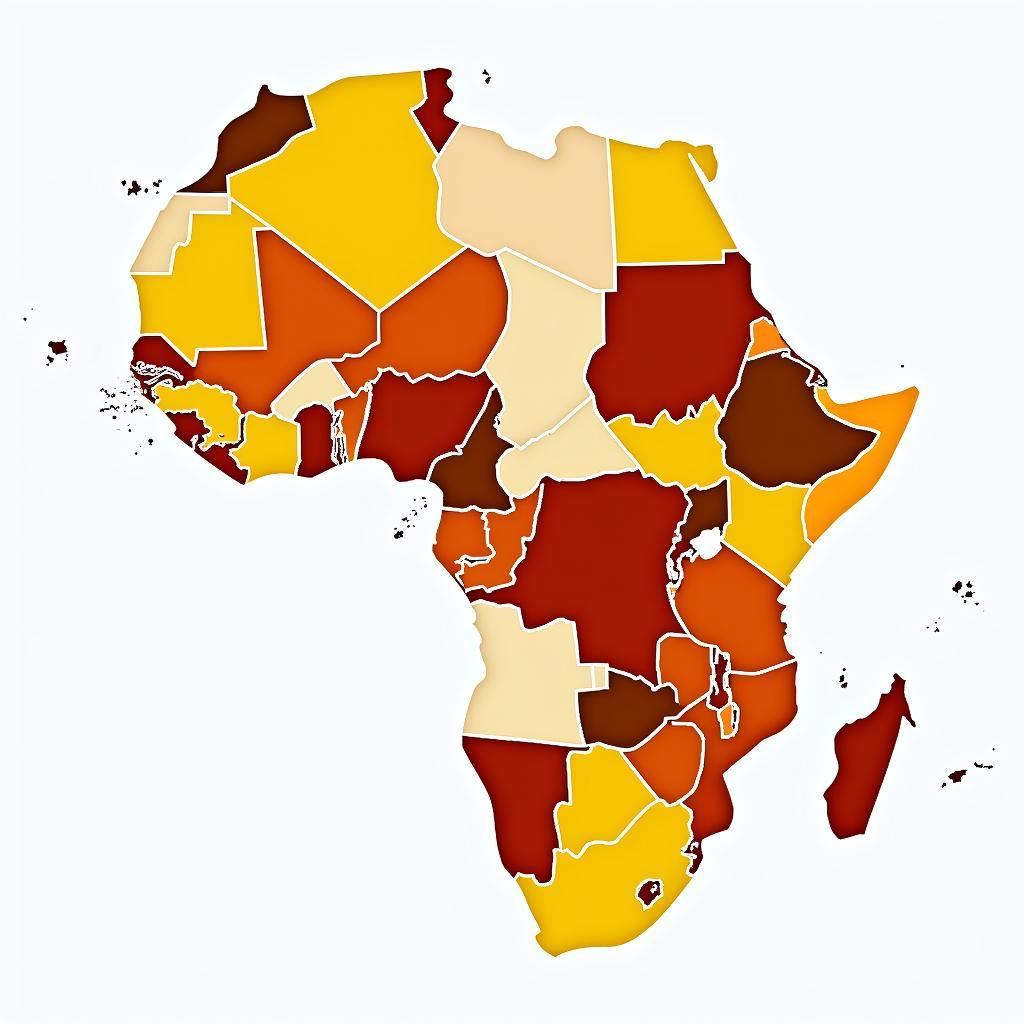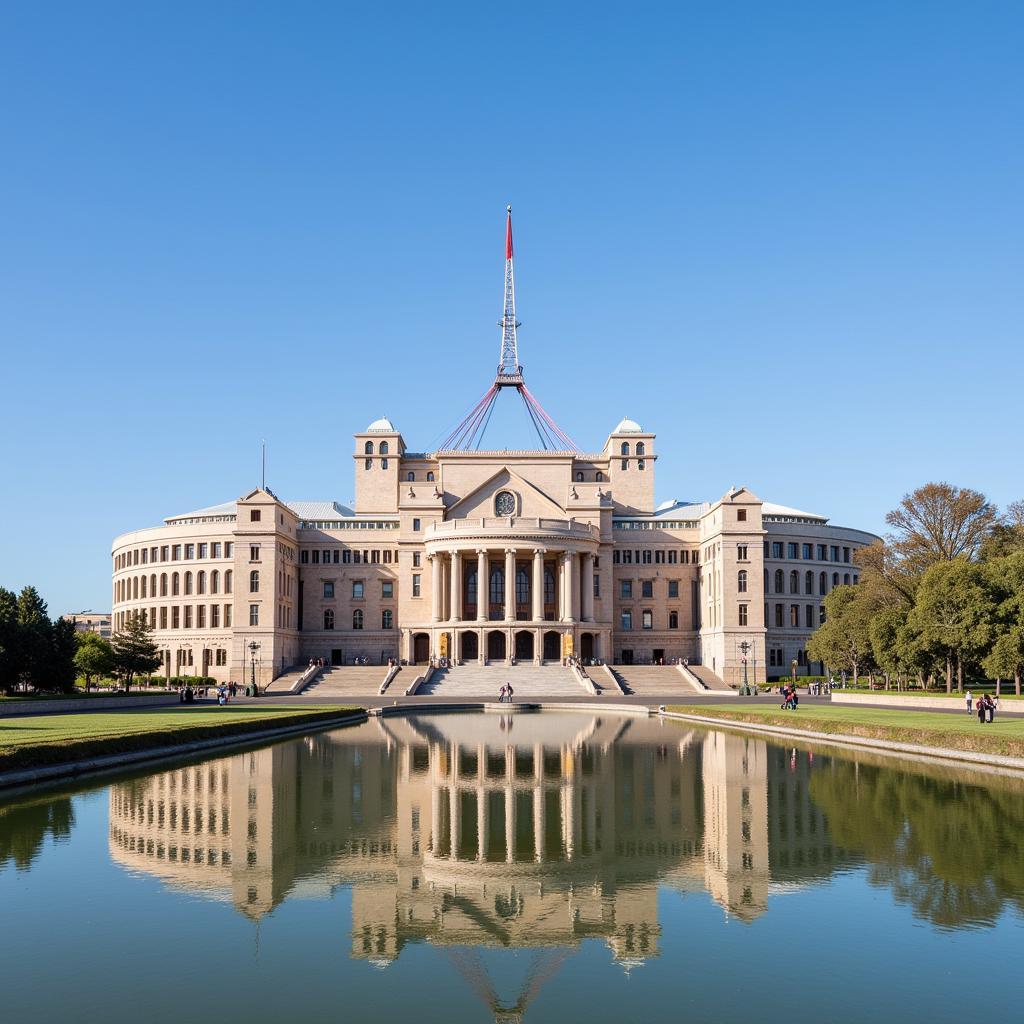African Countries with Bicameral Legislature
African Countries With Bicameral Legislature represent a fascinating aspect of the continent’s diverse political landscape. This system, involving two separate chambers of parliament, often reflects a nation’s history, social structure, and power dynamics. Understanding which African countries have adopted this system, and why, offers valuable insights into their governance.
Exploring Bicameralism in Africa
Bicameral legislatures are not universally adopted across Africa. Some countries opt for a unicameral system with a single legislative chamber. However, a significant number of nations have embraced bicameralism, often for reasons rooted in their unique circumstances. These bicameral systems serve a crucial role in representing diverse interests and ensuring checks and balances within the government. They also offer a platform for regional representation, particularly in countries with strong federal structures or significant ethnic and cultural diversity.
Why Do Some African Countries Choose Bicameral Systems?
Many factors influence a country’s decision to adopt a bicameral system. Historical influences, such as colonial legacies, often play a significant role. For example, countries that inherited Westminster-style parliamentary systems from British colonial rule are more likely to have bicameral legislatures. Similarly, the need to balance power between different regions or ethnic groups can lead to the creation of an upper house designed to represent specific interests.
Another key factor is the desire for more thorough legislative review. Having two chambers scrutinize proposed laws can help prevent hasty decisions and ensure greater consideration of diverse perspectives. This is particularly important in complex and rapidly changing societies.
 Map of African Countries with Bicameral Legislatures
Map of African Countries with Bicameral Legislatures
The Role of History and Culture
The historical and cultural context is essential for understanding the specific form bicameralism takes in different African countries. In some instances, the upper house may represent traditional authorities or customary law, reflecting the enduring influence of pre-colonial structures. In others, it may be designed to give a voice to marginalized communities or regions.
Understanding these nuances is crucial for appreciating the complexity of African governance. It also highlights the ongoing evolution of political systems as nations adapt to changing circumstances and strive to create more representative and effective forms of government.
A Closer Look at African Countries with Bicameral Legislatures
While a comprehensive list is constantly evolving, several prominent African countries operate under a bicameral system. These include countries like South Africa, Nigeria, and Kenya, each with its unique structure and historical context. Examining these examples reveals the diverse ways bicameralism manifests across the continent.
Examples of Bicameral Systems in Action
Nigeria, for instance, has a Senate and a House of Representatives, mirroring the structure of the United States Congress. South Africa, on the other hand, has a National Assembly and a National Council of Provinces, reflecting its focus on provincial representation. By studying these variations, we can gain a deeper understanding of how bicameral systems adapt to specific national contexts.
What are the advantages and disadvantages of bicameralism?
Advantages of a bicameral system include checks and balances, representation of diverse interests, and more thorough legislative review. Disadvantages can include slower legislative processes and potential gridlock between the two chambers.
 South African Parliament Building
South African Parliament Building
Conclusion
African countries with bicameral legislature offer a rich and complex area of study. By exploring the historical, cultural, and political factors driving the adoption of these systems, we can gain a deeper understanding of African governance. Understanding the nuances of these systems is key to appreciating the diverse ways African nations are shaping their democratic futures.
FAQs
- What is a bicameral legislature? A bicameral legislature is a system of government with two separate chambers or houses of parliament.
- Why do some countries choose bicameralism? Reasons include historical influence, power balance, and more thorough legislative review.
- Which African countries have bicameral legislatures? Several prominent examples include South Africa, Nigeria, and Kenya.
- What are the advantages of bicameralism? Advantages include checks and balances and representation of diverse interests.
- What are the disadvantages of bicameralism? Disadvantages can include slower legislative processes and potential gridlock.
- How does bicameralism differ across African countries? The specific form bicameralism takes depends on the country’s historical and cultural context.
- Where can I find more information about specific bicameral systems in Africa? Further research can be conducted through academic journals, government websites, and reputable news sources.
Need More Help?
For further assistance and information regarding African Life, culture, and governance, please contact us:
Phone: +255768904061
Email: kaka.mag@gmail.com
Address: Mbarali DC Mawindi, Kangaga, Tanzania
Our dedicated customer support team is available 24/7 to answer your questions. We also encourage you to explore other related articles on our website for a deeper dive into African countries with bicameral legislature and related topics.

